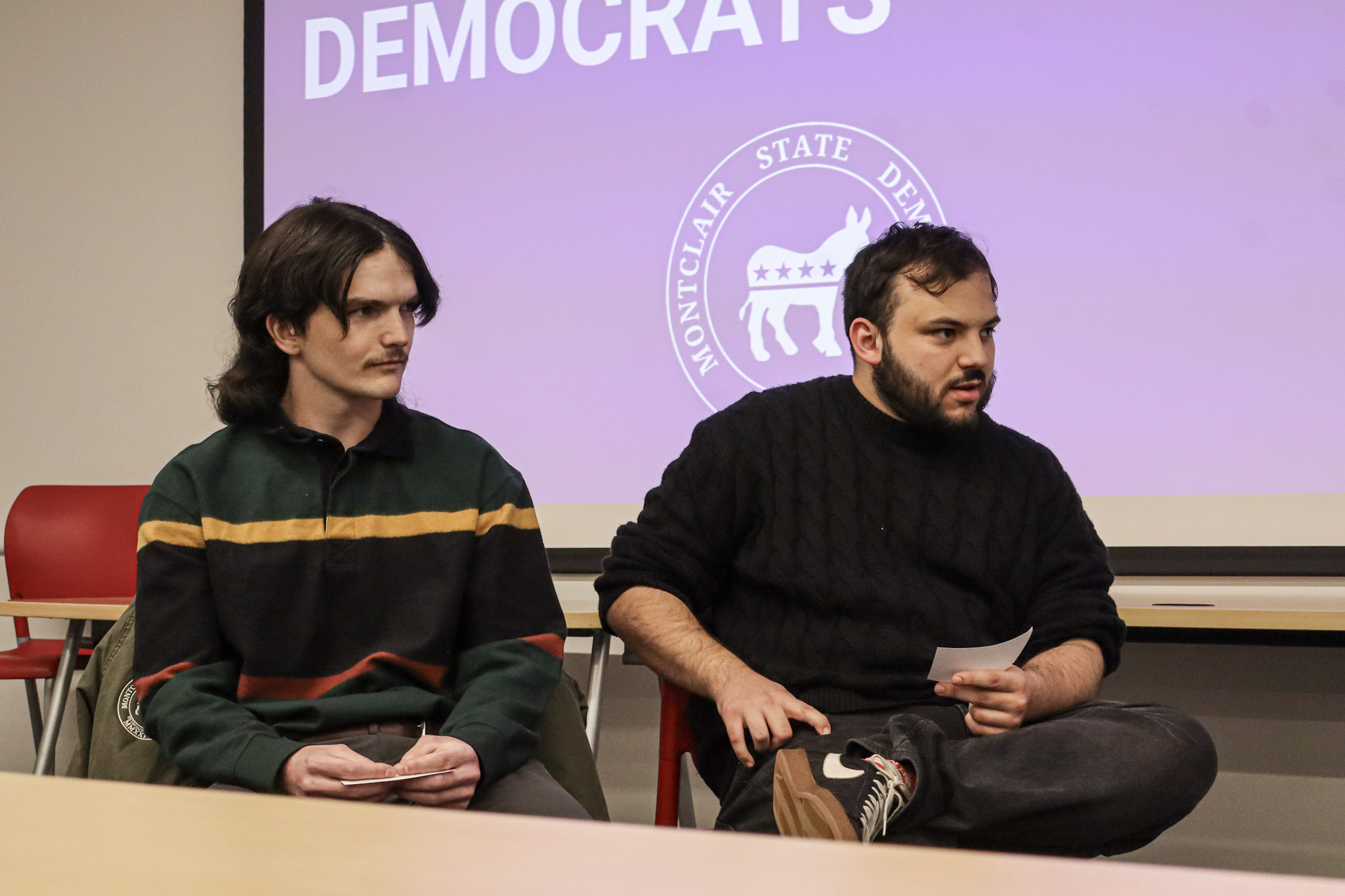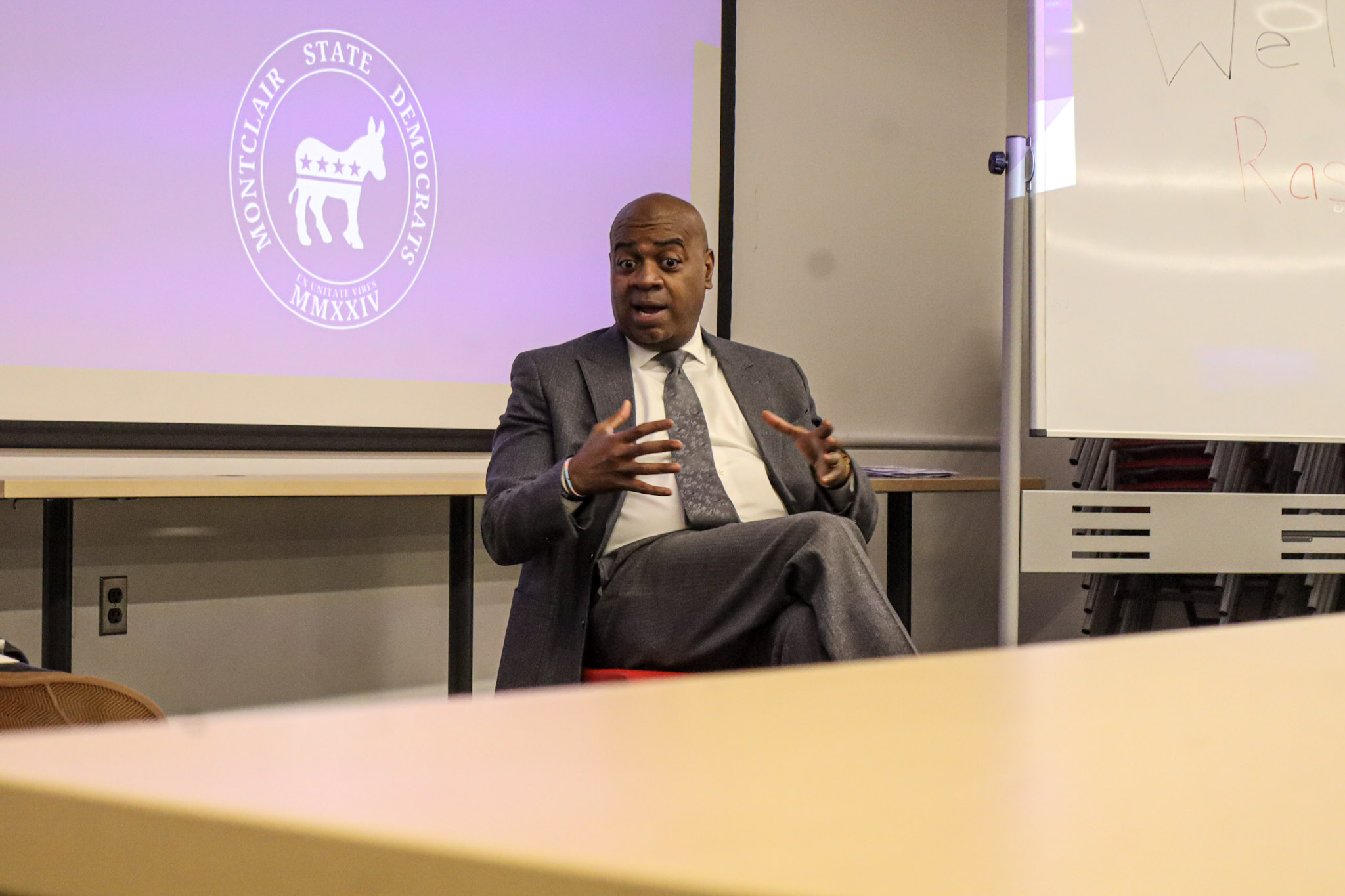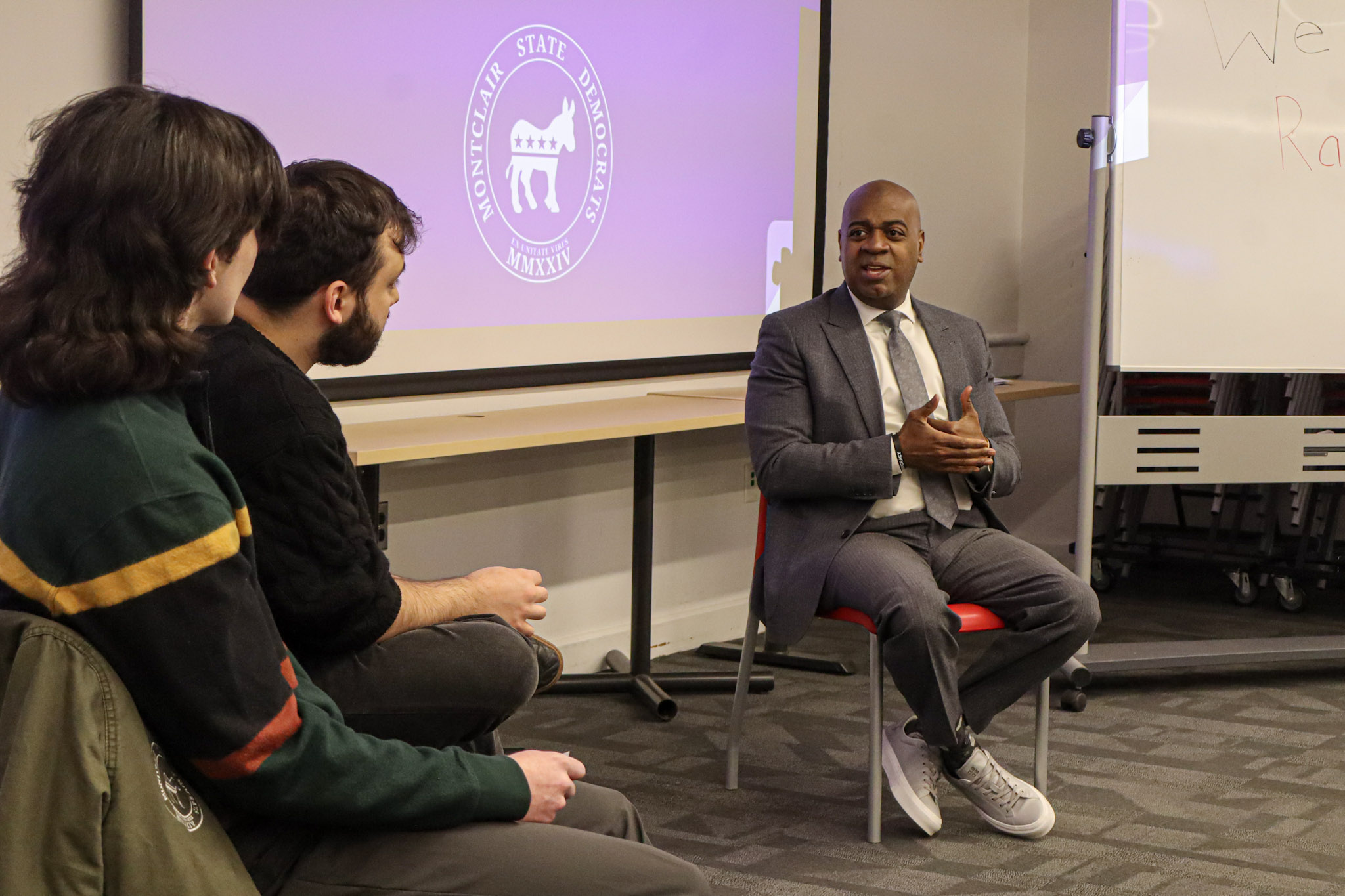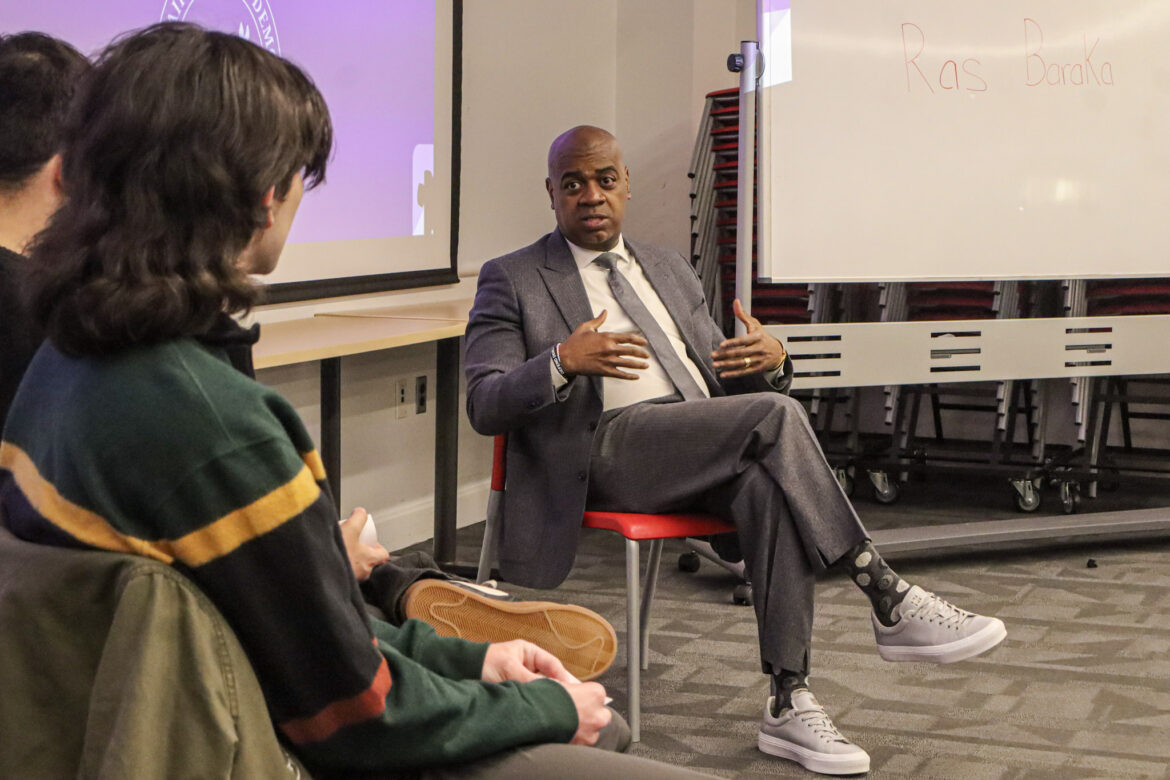Ras Baraka visited the Montclair State campus in the buildup to the gubernatorial elections in November, where nominees are aiming to become the next governor of New Jersey, replacing Gov. Phil Murphy.
In this April 8 meet-and-greet, Baraka was asked a series of questions in a sit-down conversation conducted by Montclair State Democrats chair, Ian Horn and vice chair Mohamed Fayez. Baraka weighed in on a variety of key political matters such as the Trump administration, handling of Immigration and Customs Enforcement (ICE), Medicaid cutting and much more.

Montclair State Democrats Chair Ian Horn and Vice Chair Mohammed Fayez conducting conversation with Ras Baraka. David Bien-Aime ┃The Montclarion
The current Newark mayor, who also has 23 years of experience as an educator, explained the factors that drove him into running for office.
“I was a teacher; most of the problems my [students] had, didn’t originate in school, but most of their problems [were] around food, health care, opportunity and AIDs and all of the kinds of things that were happening at that time,” said Baraka. “I was also an activist so it was also organizing and teaching kids black history in [after] school programs, feeding kids and families and protesting things that were going on at the time.”
Baraka was mayor during President Donald Trump’s first administration in 2016, and is currently serving as mayor during Trump’s second administration. Since Donald Trump officially took office in January, his executive orders and new policies have completely reshaped the political landscape. The impact of his executive orders have been felt throughout all facets of civic life, in federal, state and local level.
Baraka highlights the importance of state-level collaborations between other governors and courts to combat the Trump administration’s policies.
“So the governor [themself] would have to join other governors around the country, right,” said Baraka. “There’s governors in Arizona, California, [and] Pennsylvania. There’s many different folks that are pushing back, that are taking [Trump] to court. We need to join with them and continue to do that.”
Baraka addressed his key stances such as codifying the laws in New Jersey that emphasize more on women’s right to choose, protecting immigrants and the LGBTQ+ community, combating the Medicaid cuts and the firing of federal workers are Baraka’s key stances addressed in the conversation.

Ras Baraka speaking at the meet-and-greet. David Bien-Aime ┃The Montclarion
The Trump administration’s expansion of ICE and immigrant detention comes after one of his main political campaign promises of mass deportation. Baraka shared his approach to handling the ICE and immigration situation at the state level.
“I think what we have to do is pass the [New Jersey] Immigration Trust Act, ” said Baraka. “Even cities that are not sanctuary cities supposedly, cannot support ICE or help ICE arrest people because they are undocumented. Our institutions are supposed to not ask people about their status. This would allow you the opportunity to participate in everything the state has to offer.”
The New Jersey Immigration Trust Act bill, introduced by state senators Gordon M. Johnson and Brian P. Stack, aims to strengthen the dynamic between immigrants and public institutions by putting limits on the state and local government’s involvement in immigration enforcement. This aims to protect the privacy of immigrants and ensure community needs are met without fear of deportation.

Ras Baraka answering questions asked by the Montclair State Democrats Chair and Vice Chair. David Bien-Aime┃The Montclarion
When asked about a piece of advice for political science and law students who are disillusioned with the current and future political state of the country, Baraka advised civic engagement and community involvement.
“The future in politics is you; the only way you plan the future is [to] create it,” said Baraka. “The reality is you get involved in politics today, right now. The politics of what’s happening on the campus, you run for office on campus, you get involved in campaigns on campus and you’re involved in campaigns in your district, and your city where you’re from.”



